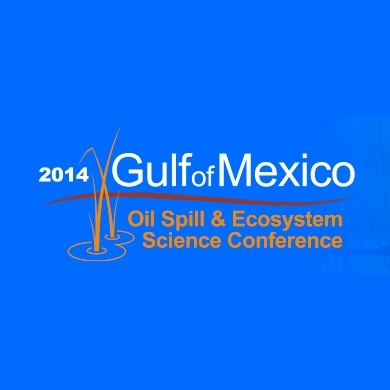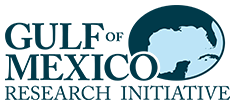1. Dispersants: what do we know and what do we need to learn, to better inform decisions about their use? – Facilitated by Dr Nancy Kinner (Director, Center of Spill in the Environment), this will be an open discussion about dispersants from industry, practitioner, research and private perspectives. A summary report will be distributed to participants and made available on the GoMRI web site.
You can find the formal announcement here.
2. GoMRI Hydrocarbons Analysis QA/QC Workshop – Following the Dispersant Session we will transition into a one hour discussion about hydrocarbon chemistry QAQC practices and recommendations from leaders in the field. The discussions from this workshop will be used to frame subsequent sessions and guidance around GoMRI hydrocarbon chemistry research and QAQC.
You can find the formal announcement here.
You are all invited to attend both sessions. Please distribute this announcement to appropriate members in your research groups and encourage those interested to attend/contribute.
ABSTRACT DEADLINE EXTENDED TO OCTOBER 22, 2013
January 26-29, 2014
Renaissance Mobile Riverview Plaza Hotel, 64 South Water Street, Mobile, Alabama 36602
Conference Goals
As we enter the fourth year of research following the Deepwater Horizon incident and associated investments focused on the Gulf of Mexico, the science community is now well positioned to deliver integrated findings both within the scientific community and to stakeholder groups. This is why the Executive Committee has chosen “Collaboration, Integration and Synthesis” as the overarching goals for the 2014 Gulf of Mexico Oil Spill and Ecosystem Science Conference. To accomplish these goals, the Conference will facilitate interdisciplinary discussion and promote outcomes that require integration and synthesis across fields and themes.
Participants of this conference will share new scientific results among the disciplines and develop recommendations or action plans for collaborative integration and synthesis or legacy products from post-spill investment in science. This will be done through sessions that must integrate several disciplines under the umbrella of the session. Sessions will take place January 26th, 27th & 28th, and January 29th will be reserved for presentation and discussion of session outcomes, as well as keynote and other presentations.
Conference Themes
The Collaboration, Integration and Synthesis goals of the conference will incorporate the general themes of Gulf oil spill and ecosystem science, as presented at the 2013 conference, and apply these themes to specific outcome-oriented topics.
Themes
The following themes, presented in 2013, apply to this conference:
- Understanding the dynamic physical processes of the Gulf of Mexico and related environment.
- Understanding the chemistry of the Gulf of Mexico system and the evolution and interactions of pollutants introduced by humans in the coastal, open-ocean, and deep-water ecosystems.
- Understanding the Gulf of Mexico ecosystem, including the sea floor, water column, coastal waters, beach sediments, wetlands, marshes, and organisms.
- Technology developments for improved research and operations in the Gulf.
- Understanding the impact of environmental health and function on socioeconomic conditions and public health.
- Gulf of Mexico management and policy, including response, mitigation and restoration following environmental emergencies.
- Education and outreach
Topics to be addressed
By integrating scientific findings that fall under the conference themes, the conference will address the outcome-oriented topics below. It should be understood that each of these topics encompasses dynamic physical processes, chemistry, biology, health, toxicology, and socio-economics that connect the Gulf of Mexico ecosystem and surrounding regions.
- Ecosystem assessment, vulnerability, and resilience: integrated cause and effect studies and trends across disciplines
- Ongoing science, technology, monitoring, and mitigation strategies with respect to the DWH Oil spill response: What is needed to prepare for, support, and manage future hydrocarbon exploration and production in the Gulf of Mexico
- Valuing ecosystem services and quantifying effects of oil spills on ecosystem services through environmental, public health, and socioeconomic science
- Promoting scientific literacy, perception, and expectations about oil spill research among stakeholders
Important Dates
Please note these dates are tentative and may change
- Mid May 2013: Call for Scientific Sessions
- Late June 2013: Due date for Scientific Session and Workshop Proposals
- End July 2013: Inform session chairs of session acceptance
- Mid August 2013: Announce Scientific Sessions, Open Registration and Abstract Submission
- Mid October 2013: Abstract Submission closes
- Early-Mid November 2013: Inform speakers of abstract acceptance
- December 3, 2013: Early Bird Registration rates close
- January 20, 2014: Online Registration closes
- January 26-29, 2014: Conference dates
Anticipated attendance
Approximately 600 people from academia, state and federal agencies, and non-governmental organizations.



